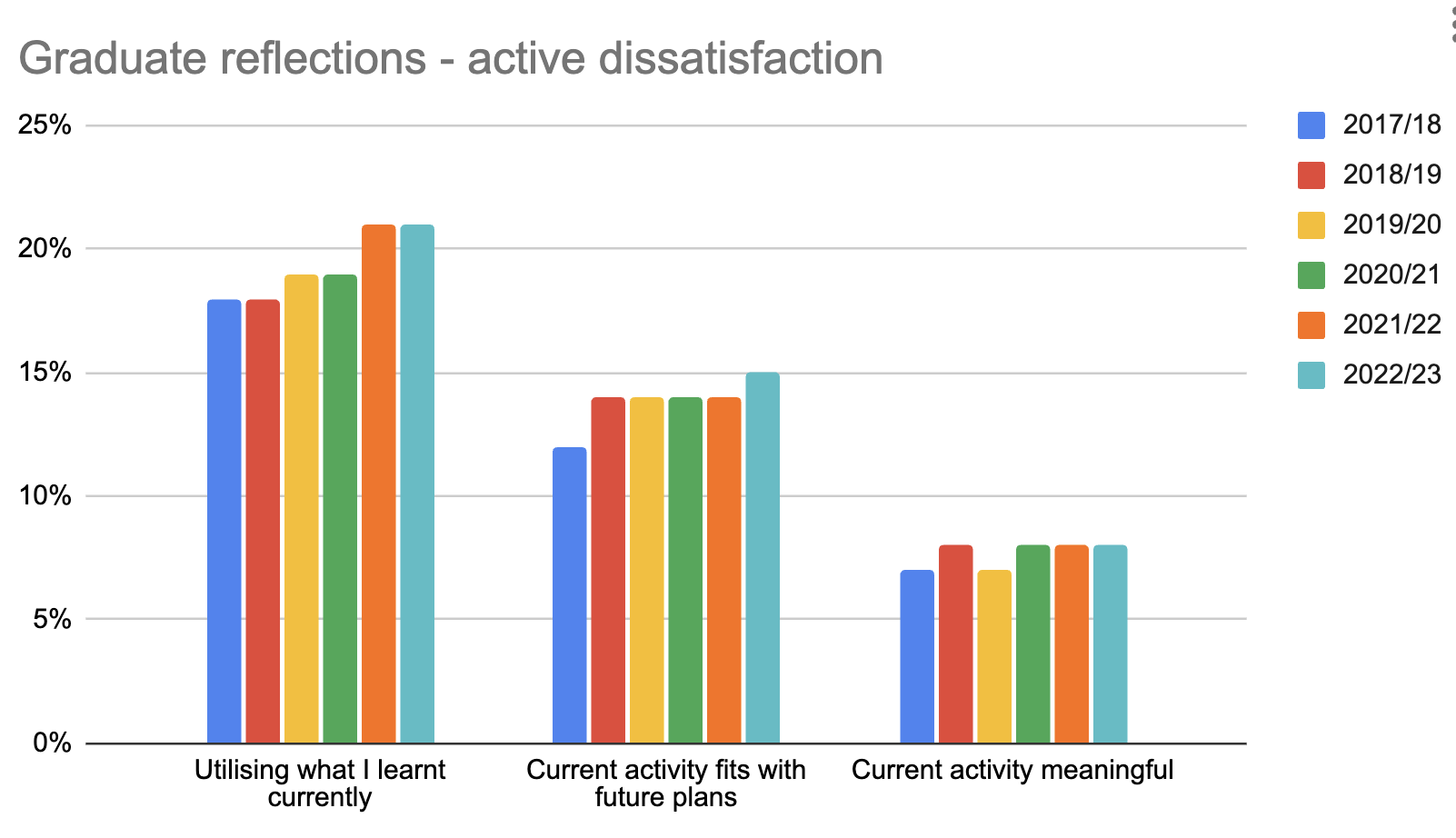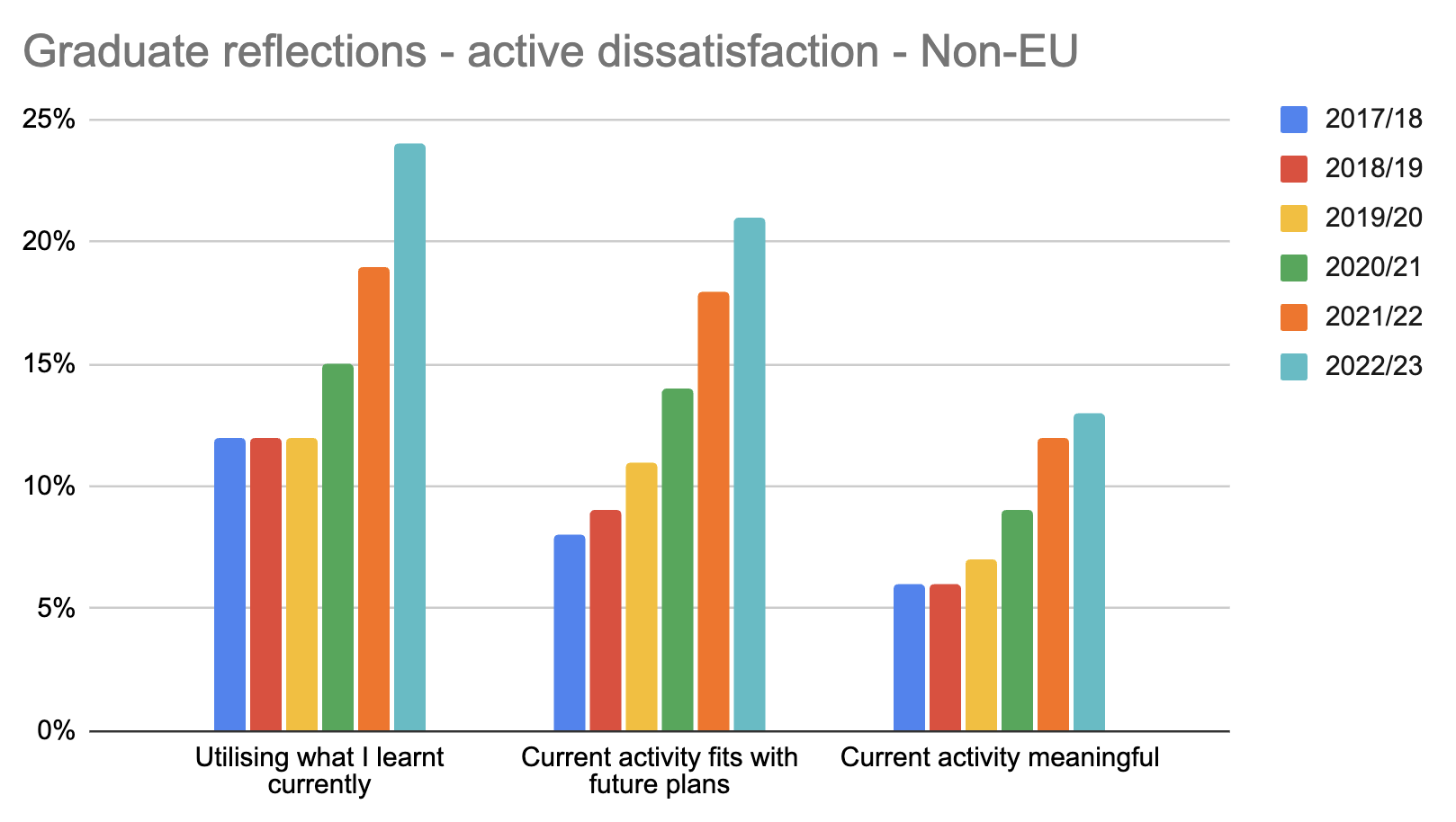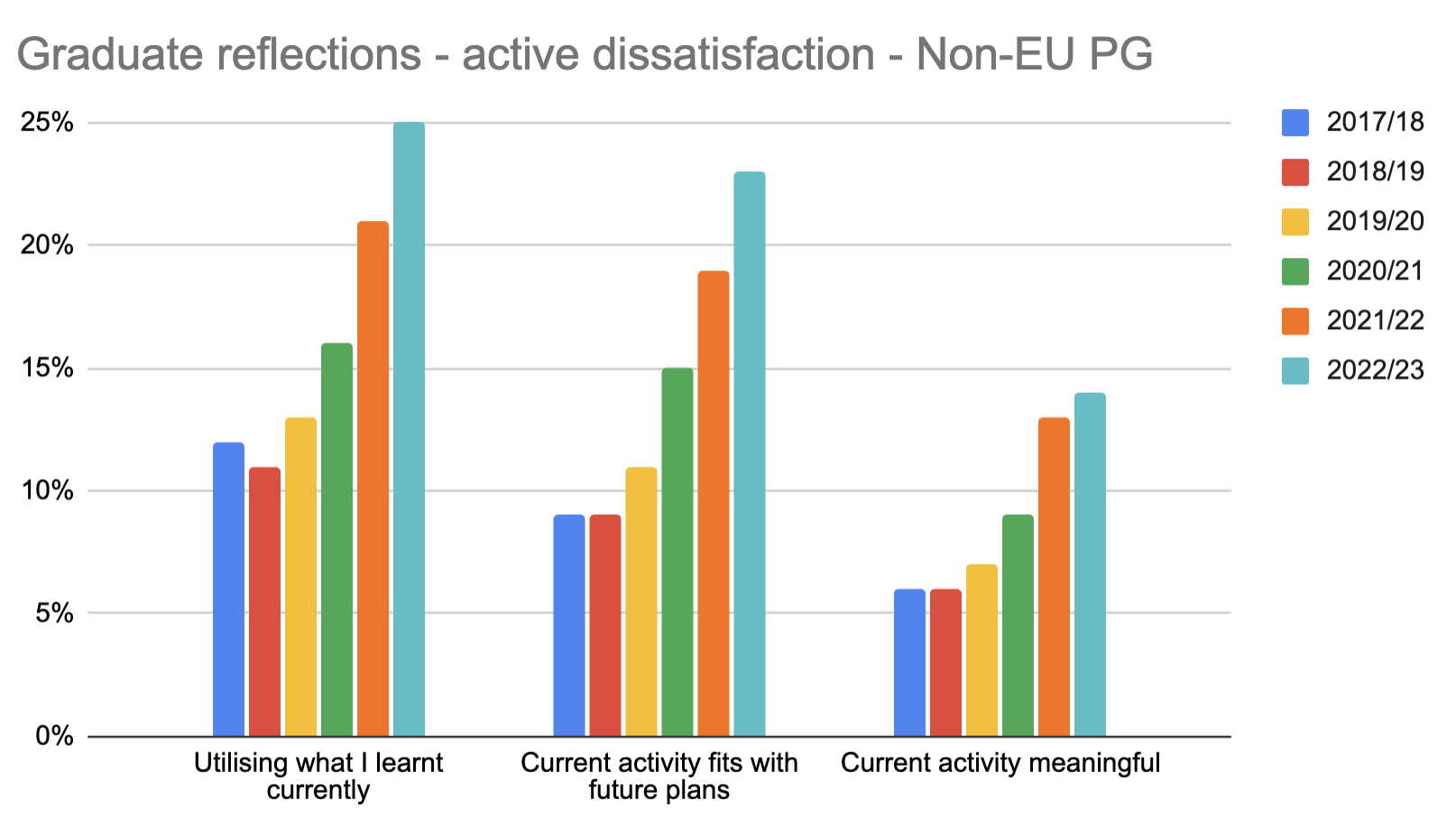International graduate dissatisfaction is hitting new highs
Jim is an Associate Editor (SUs) at Wonkhe
Tags
“That doesn’t necessarily mean they always expect a job”, she argued. “But what it does mean is that I will become globally employable, and I’ll have the opportunity to secure meaningful work experience after I’ve completed studies.”
It reflects what me and Mack are hearing from international student leaders that we’ve been out delivering training to this summer. Employment support, enhanced career guidance, integrated skills in the curriculum, more practical teaching, and improved work placements are all key priorities.
Maybe it’s because international students are less aware of shortcomings in other areas of student life. Maybe it’s about growing anxiety about economic conditions at home or in the UK. Maybe it’s about how strongly these opportunities are marketed for their career benefits. Or maybe it’s just that current delivery in this area is falling short.
Raw graduate recruitment stats from the graduate outcomes survey are getting faultier – DK’s write up of the June release from the Class of 2022/23 noted a response rate of just 35 per cent (39 per cent if you include partial completions), and so we have to be careful with what follows.
But if we focus on active dissatisfaction with the three “reflections” questions, there’s been a marked rise since the survey’s introduction:

If we then look just at non-EU international students, the rise is more pronounced. International students are now significantly above the averages:

And if we then look just at non-EU international PG students, the rise is really quite dramatic:

There’s another year of rapid expansion to come in these figures, and if the trend lines continue, another year of significant dissatisfaction growth. We may well hit 30 per cent on that not “using what I learnt” question.
Multiple factors will likely have influenced the situation – but a cynic might argue that while international PG numbers and revenues have grown, the necessary careers support hasn’t kept pace. And maybe over-theoretical curricula is looking like a major problem too.
The officers we meet consistently complain that they were sold networks that are never facilitated, leadership experience that is hard to come by, placement-finding support that never materialises, and a student experience that is brutally punishing once cost-of-living realities hit home.
Regardless of inflation hikes or changes in immigration policy, these are the sorts of perceptions that both circulate and resonate within students’ home countries. Most of those we speak to know that they are helping to subsidise home students’ education. They reasonably just want and need a little more of the fees they pay spent on them.

